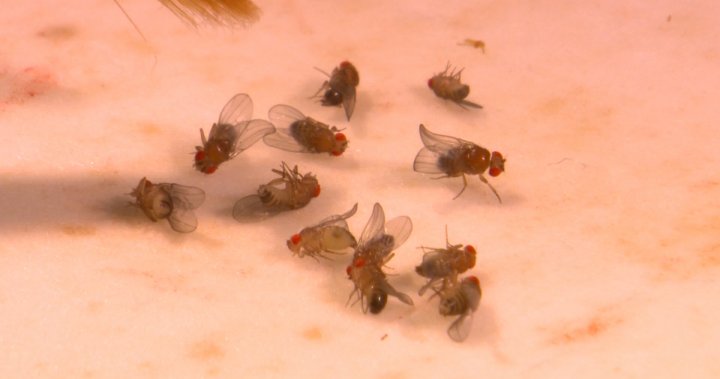Researchers at Simon Fraser University’s Verheyen lab have potentially discovered a gene that could reverse Parkinson’s disease symptoms in fruit flies. The gene, called Cyclin-dependent kinase 8 (Cdk8), bears a resemblance to a human gene called CDK19, which helps ensure proper function within the body’s cells. By introducing extra copies of the Cdk8 gene into fruit flies with Parkinsonism, the researchers were able to reduce their symptoms. The gene is involved in helping cells eliminate defective mitochondria, a function impaired in Parkinsonism. The similarities to the human gene could potentially lead to new treatments for human Parkinson’s patients.
The research by the Verheyen lab is being done in collaboration with a group from Bayor College of Medicine in Texas and was recently published in Nature Communications. The next steps in the research could involve investigating whether a drug exists or could be developed to activate Cdk8 cells in the body, allowing the body to produce it internally rather than relying on an external source. Parkinson’s disease is a neurodegenerative disorder that affects movement and the nervous system, leading to symptoms such as tremors, slowness of movement, stiffness in limbs, and issues with walking and balance. The cause of Parkinson’s is not fully understood, but it is believed to be a combination of genetic and environmental factors, with symptoms arising from the death of dopamine-producing cells in the brain.
The potential discovery of a gene that can reverse Parkinson’s symptoms in fruit flies is significant due to the possible implications for human patients. By studying the fruit fly version of Cdk8, researchers can gain insights that may be applicable to human disease. This research represents a promising step towards understanding the mechanisms underlying Parkinson’s disease and developing new treatments. Parkinson’s has been identified as one of the fastest-growing neurological disorders in the world by the World Health Organization, highlighting the urgent need for advancements in research and treatment options.
The Verheyen lab’s findings suggest that targeting the Cdk8 gene could be a viable approach for treating Parkinson’s disease. The gene’s role in helping cells eliminate defective mitochondria, a process that is impaired in Parkinsonism, indicates its importance in the disease’s pathology. By introducing extra copies of the Cdk8 gene into fruit flies with Parkinsonism and observing a reduction in symptoms, the researchers have demonstrated the potential therapeutic benefits of targeting this gene. Further research is needed to explore the possibility of developing drugs that can activate Cdk8 cells in humans to improve symptoms and potentially slow the progression of Parkinson’s disease.
The collaboration between researchers at Simon Fraser University and Bayor College of Medicine in Texas underscores the importance of interdisciplinary approaches in scientific research. By combining expertise from different fields and institutions, researchers can leverage their collective knowledge and resources to make advancements in understanding complex diseases like Parkinson’s. The publication of their research in a reputable journal like Nature Communications further solidifies the significance of their findings and opens doors for additional research and collaboration in the field of Parkinson’s disease research. Moving forward, continued efforts to investigate the potential therapeutic benefits of targeting the Cdk8 gene could lead to new treatment options for Parkinson’s patients and contribute to a better understanding of the disease’s underlying mechanisms.













